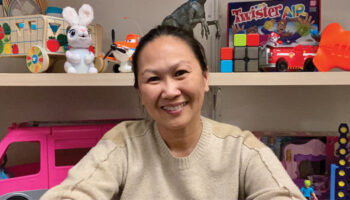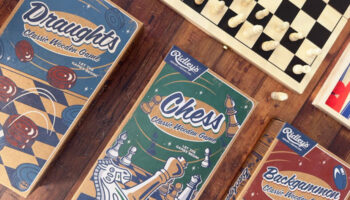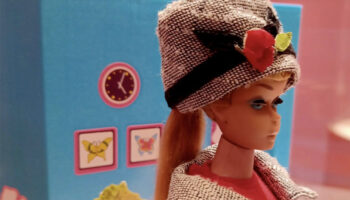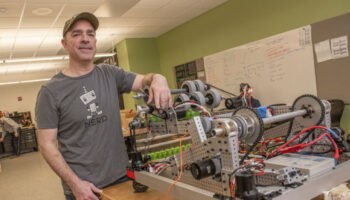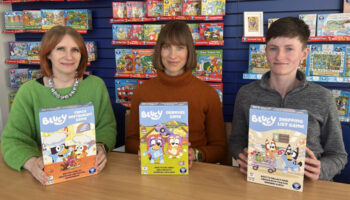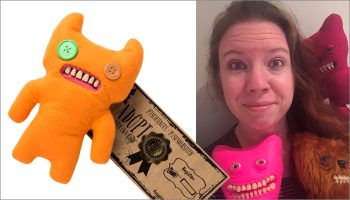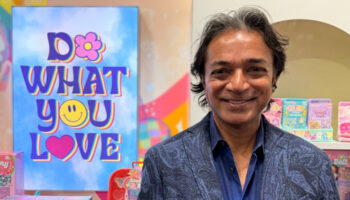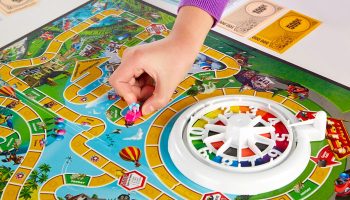Making Connections

Game design can be a solitary activity – but if you stay in your own little corner, you’re missing out.
In my experience, spending time with other game designers can have a disproportionately huge impact. Here are some of the things it lets you do:
Spark ideas
Playtesting and design discussions spark ideas. A small window into another designer’s mind could provide new perspective. So invest in a good notebook, because a single question or throw-away comment could inspire a new game or elevate an existing one. As inventor Josh Ewart says: “Discussing game design just puts my brain in the right space to pick my own designs back up again.”
Develop games
Playtesting with other designers gives you access to a collective wealth of experience. They’ll tell you why your game is broken, suggest improvements, explain why some solutions are better than others and – crucially – tell you when you have something special. The game designer Shawn Hoult says: “I don’t think I could design without [other designers]. They are both my biggest cheerleaders and my biggest reality checks.”
Increase your understanding
Your game design problems are not unique. Other people have dealt with the issues you’re facing. Mechanics and structures will be discussed, dissected, examined, evaluated and bolted back together. You’ll learn why some designs fly and others are abandoned. You’ll discover how small changes can have a huge impact.
Build your toolkit
Learning how others structure their game design and development activity helps expand your own ways of working. You’ll pick up tips and tricks for creating prototypes, note-keeping, working with co-designers, organising feedback… Your exposure to different approaches then shapes and informs your own style. As game designer Bez Shahriari puts it: “We’re a tribe… And there’s no denying that it’s a joy to have a geeky talk about this amazing thing that we’ve all dedicated our lives to.”
Expand your frame of reference
A discussion around a concept can trigger a string of references from others: games to play, books to read, videos to watch, podcasts to hear. Ask game designers about what they’ve played – and pay attention to what impresses, excites and inspires them.
Improve analysis
Playtesting gives you practise at playing a game while still evaluating the design. Sharing feedback forces you to structure your thoughts. Being challenged encourages you to delve deeper and refine your rationale. Your shared language grows. The more feedback you provide for others, the more able you are to evaluate your own designs.
Grow your network
Other designers are likely to tell you about playtesting events, conferences, conventions, online groups, pitching events and meet-ups. You’ll receive invitations and introductions, develop a reputation and find people to pitch to.
Get your game to market
Most designers are happy to share their experience of dealing with publishers. The knowledge you gain helps you lean into best practice and avoid common pitfalls when pitching ideas or signing a contract.
Gain perspective
Hearing successful designers share their stories of failure is valuable. Conversations reveal shared experiences, frustrations and blocks.
Game designer Doruk Kicikoglu sums it up: “Game designers are your guides, advisors, playtesters, co-designers, partners and friends.” It’s easy to think you need to take the advice of someone more experienced if that’s the only voice you hear… So my advice is to make sure you can hear a whole chorus of voices – and don’t be afraid to add yours to the mix.
–
To stay in the loop with the latest news, interviews and features from the world of toy and game design, sign up to our weekly newsletter here





